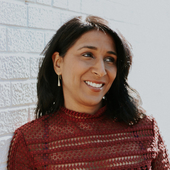It’s not often that events far away impact us so profoundly at home. But events in Palestine and Israel, which have been reverberating in the Global North for decades, crescendoed over the past year, directly impacting millions of people in the region and also those of us who feel deeply committed to the transnational issues the conflict raises.
Away, in Israel, 80,000 people remain displaced from their homes and lives continue to be gutted after the horrific attacks by Hamas on Oct. 7, 2023, which led to over 1,200 people killed and 250 taken captive. Across the border, more than 42,000 Palestinians have been killed, primarily by Israeli forces, and another two million have been displaced, many of whom are facing catastrophic famine conditions.
Here in Ontario, before the start of this war, the Ford government had connected criticism of Israel to antisemitism and turned that concept into law through an executive decree. That same definition was picked up by institutions across Canada.
That decree has ramifications for news media as well as university scholars across the country. This spring, students on Canadian campuses turned Canadian universities into massive hubs of debate as they protested the Israeli government’s actions in Gaza and the West Bank.
In late September, those debates continued at the grade-school-level when teachers in Toronto were prevented from taking students on any field trips for the National Day for Truth and Reconciliation, a federally mandated day of memorialization. That school board decision was based on concerns that students may be exposed to rhetoric supporting Palestine. At an earlier demonstration about Asubpeeschoseewagong (Grassy Narrows) First Nation, some demonstrators chanted a slogan connecting Indigenous Peoples dispossessed of their land here to those in Palestine, also dispossessed of their land.
Recently, two Canadian scholars discussed some of those connections: how famine historically was used to control Indigenous communities in Canada, and continues to be a weapon of war against Palestinians today.
When I was in grade school, Nelson Mandela and the African National Congress were classified as terrorists. Although I remember somehow being able to attend a school-sponsored talk by a former ANC member who spoke about the 1976 Soweto uprising. I trace part of my politicization back to that day.
Teachers who introduce their students to issues like Grassy Narrows are aware of the lasting impression first-person narratives can make.
This week, we put together eight episodes from Don’t Call Me Resilient from the last year in which you will hear directly from scholars with deep knowledge of the regions and the issues at play. The playlist starts with: “Why the Israel-Gaza conflict is so hard to talk about,” with other episodes digging into themes of starvation, news media, student protests and asylum seekers.
Because it’s the long weekend, I’ll also point you to a music playlist we made, with suggestions from our podcast guests over the years. I’m inviting all of you to write in with song suggestions to add to it. We will try to get at least some of them up there this long weekend.



 Elon Musk’s Empire: SpaceX, Tesla, and xAI Merger Talks Spark Investor Debate
Elon Musk’s Empire: SpaceX, Tesla, and xAI Merger Talks Spark Investor Debate  BTC Flat at $89,300 Despite $1.02B ETF Exodus — Buy the Dip Toward $107K?
BTC Flat at $89,300 Despite $1.02B ETF Exodus — Buy the Dip Toward $107K?  FxWirePro- Major Crypto levels and bias summary
FxWirePro- Major Crypto levels and bias summary  JPMorgan Lifts Gold Price Forecast to $6,300 by End-2026 on Strong Central Bank and Investor Demand
JPMorgan Lifts Gold Price Forecast to $6,300 by End-2026 on Strong Central Bank and Investor Demand 


























